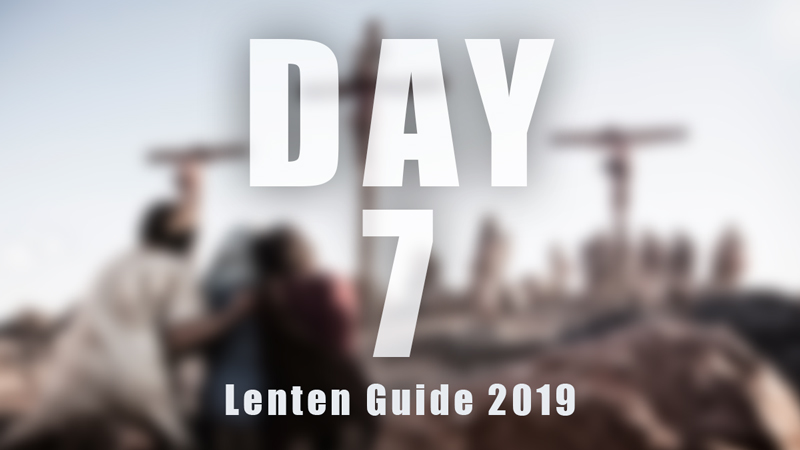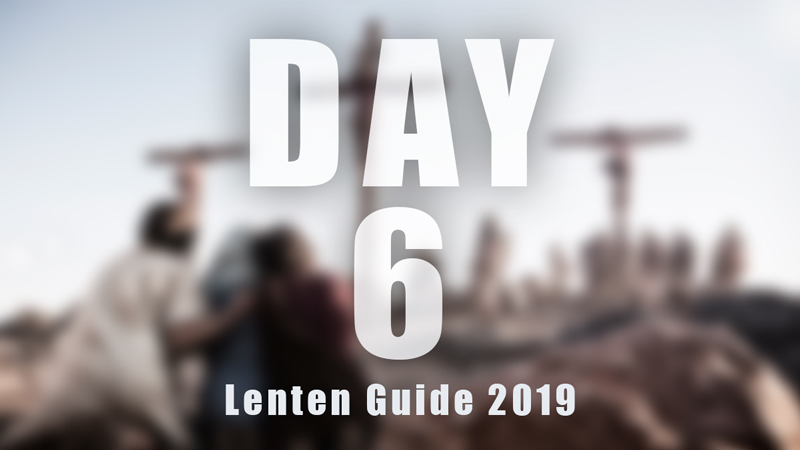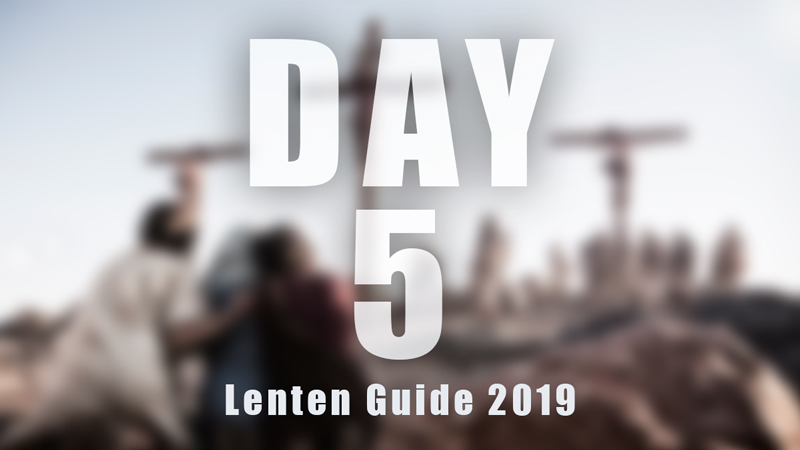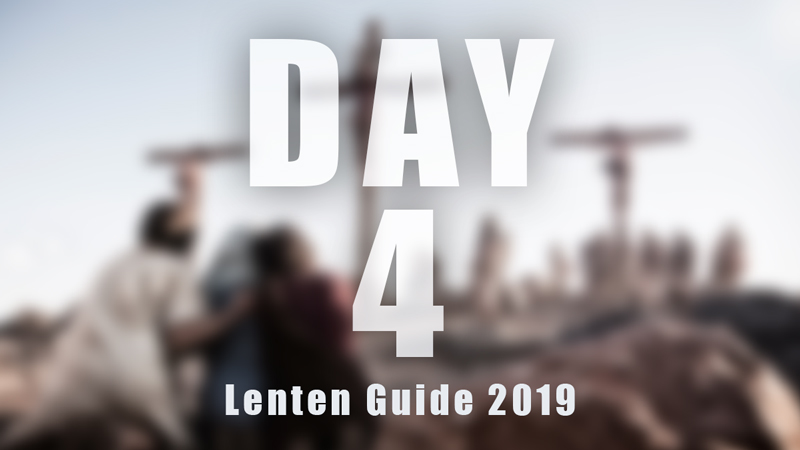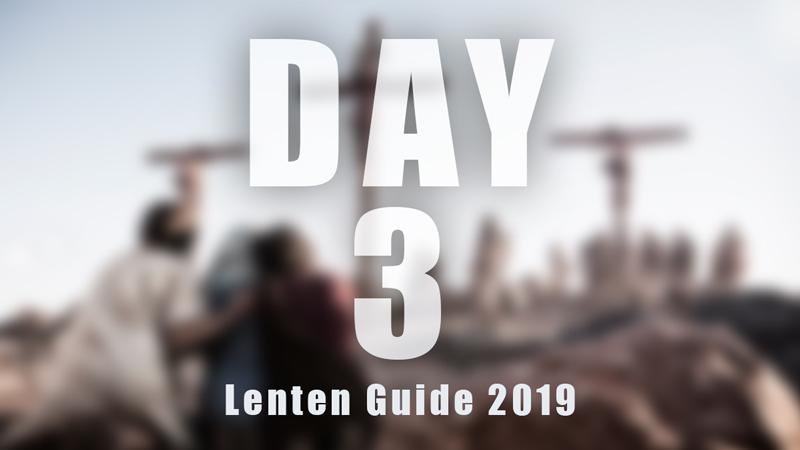Day 2: The Altar
‘The introduction of the altar, as God’s house even in its early and primitive stages, immediately reveals the two fundamental facts that are necessary in establishing the house of God.
1. The first fact deals with our relation with God.
The word “altar” in Hebrew, as in Arabic “mazbeh”, refers to the place at which sacrifices are slaughtered. This is evident from the story of Genesis (22:9) where Isaac was laid on the altar to be [slain] and burned, ie. meeting with God was made possible through a redeeming offering or sacrifice.
Indeed, if the house of God is a meeting with God, then it is definitely an entry to the Sacrifice of the Cross. Through this sacrifice, His beloved Son, we can be reconciled with God. His blood clears our sight so that we recognise the Lord as our Father, who sanctifies our inner depths and tears away the debt we were unable to pay.
…The church atmosphere should be conditioned as to attract every heart towards God, to enjoy reconciliation constantly with the Father brought about by the sacrifice of Jesus our Saviour.
2. The second fact deals with our relation with God as a group or congregation.
This concept came to light at the time when Elijah, the prophet built an altar of twelve stones (1 Kings 18:30), imitating the Sinai tradition when Moses did the same thing (Exod. 24:4). Each stone represents a tribe, as if God’s altar derives its existence from the combined effort of the whole people through the sacrifice of reconciliation. Thus although meeting with God is achieved on a personal basis, by our faith in the Saviour, it is bound to occur without isolation from others, ie. the holy congregation.
Once again, on such a basis the house of God ought to be built: its materials, rites or worships should all form authentic icons, revealing the two integral and inseparable aspects that govern our relation with God.
A. God’s eagerness to unite with each one personally.
B. God wishes that we all unite in Him, so that our knowledge of Him is not confined to the individual level, but is extended with the spirit of practical love and unity, as one church body extending from Adam. Each member represents a church, or a living sanctuary of God, that is not isolated nor separated from the altar body or the church body which is the only bride of Christ.‘
– Fr Tadros Y. Malaty – The Church the House of God
Day 2: The Altar
‘The introduction of the altar, as God’s house even in its early and primitive stages, immediately reveals the two fundamental facts that are necessary in establishing the house of God.
1. The first fact deals with our relation with God.
The word “altar” in Hebrew, as in Arabic “mazbeh”, refers to the place at which sacrifices are slaughtered. This is evident from the story of Genesis (22:9) where Isaac was laid on the altar to be [slain] and burned, ie. meeting with God was made possible through a redeeming offering or sacrifice.
Indeed, if the house of God is a meeting with God, then it is definitely an entry to the Sacrifice of the Cross. Through this sacrifice, His beloved Son, we can be reconciled with God. His blood clears our sight so that we recognise the Lord as our Father, who sanctifies our inner depths and tears away the debt we were unable to pay.
…The church atmosphere should be conditioned as to attract every heart towards God, to enjoy reconciliation constantly with the Father brought about by the sacrifice of Jesus our Saviour.
2. The second fact deals with our relation with God as a group or congregation.
This concept came to light at the time when Elijah, the prophet built an altar of twelve stones (1 Kings 18:30), imitating the Sinai tradition when Moses did the same thing (Exod. 24:4). Each stone represents a tribe, as if God’s altar derives its existence from the combined effort of the whole people through the sacrifice of reconciliation. Thus although meeting with God is achieved on a personal basis, by our faith in the Saviour, it is bound to occur without isolation from others, ie. the holy congregation.
Once again, on such a basis the house of God ought to be built: its materials, rites or worships should all form authentic icons, revealing the two integral and inseparable aspects that govern our relation with God.
A. God’s eagerness to unite with each one personally.
B. God wishes that we all unite in Him, so that our knowledge of Him is not confined to the individual level, but is extended with the spirit of practical love and unity, as one church body extending from Adam. Each member represents a church, or a living sanctuary of God, that is not isolated nor separated from the altar body or the church body which is the only bride of Christ.‘
– Fr Tadros Y. Malaty – The Church the House of God
Gospel from St. Luke the Apostle 12:41-50
41 Then Peter said to Him, “Lord, do You speak this parable only to us, or to all people?”
42 And the Lord said, “Who then is that faithful and wise steward, whom his master will make ruler over his household, to give them their portion of food in due season? 43 Blessed is that servant whom his master will find so doing when he comes. 44 Truly, I say to you that he will make him ruler over all that he has. 45 But if that servant says in his heart, ‘My master is delaying his coming,’ and begins to beat the male and female servants, and to eat and drink and be drunk, 46 the master of that servant will come on a day when he is not looking for him, and at an hour when he is not aware, and will cut him in two and appoint him his portion with the unbelievers. 47 And that servant who knew his master’s will, and did not prepare himself or do according to his will, shall be beaten with many stripes.48 But he who did not know, yet committed things deserving of stripes, shall be beaten with few. For everyone to whom much is given, from him much will be required; and to whom much has been committed, of him they will ask the more.
Christ Brings Division
49 “I came to send fire on the earth, and how I wish it were already kindled! 50 But I have a baptism to be baptised with, and how distressed I am till it is accomplished!
Lenten Guide | Week 1 | 5/3/19 | Day 2: The Altar
Gospel from St. Luke the Apostle 12:41-50
41 Then Peter said to Him, “Lord, do You speak this parable only to us, or to all people?”
42 And the Lord said, “Who then is that faithful and wise steward, whom his master will make ruler over his household, to give them their portion of food in due season? 43 Blessed is that servant whom his master will find so doing when he comes. 44 Truly, I say to you that he will make him ruler over all that he has. 45 But if that servant says in his heart, ‘My master is delaying his coming,’ and begins to beat the male and female servants, and to eat and drink and be drunk, 46 the master of that servant will come on a day when he is not looking for him, and at an hour when he is not aware, and will cut him in two and appoint him his portion with the unbelievers. 47 And that servant who knew his master’s will, and did not prepare himself or do according to his will, shall be beaten with many stripes.48 But he who did not know, yet committed things deserving of stripes, shall be beaten with few. For everyone to whom much is given, from him much will be required; and to whom much has been committed, of him they will ask the more.
Christ Brings Division
49 “I came to send fire on the earth, and how I wish it were already kindled! 50 But I have a baptism to be baptised with, and how distressed I am till it is accomplished!

